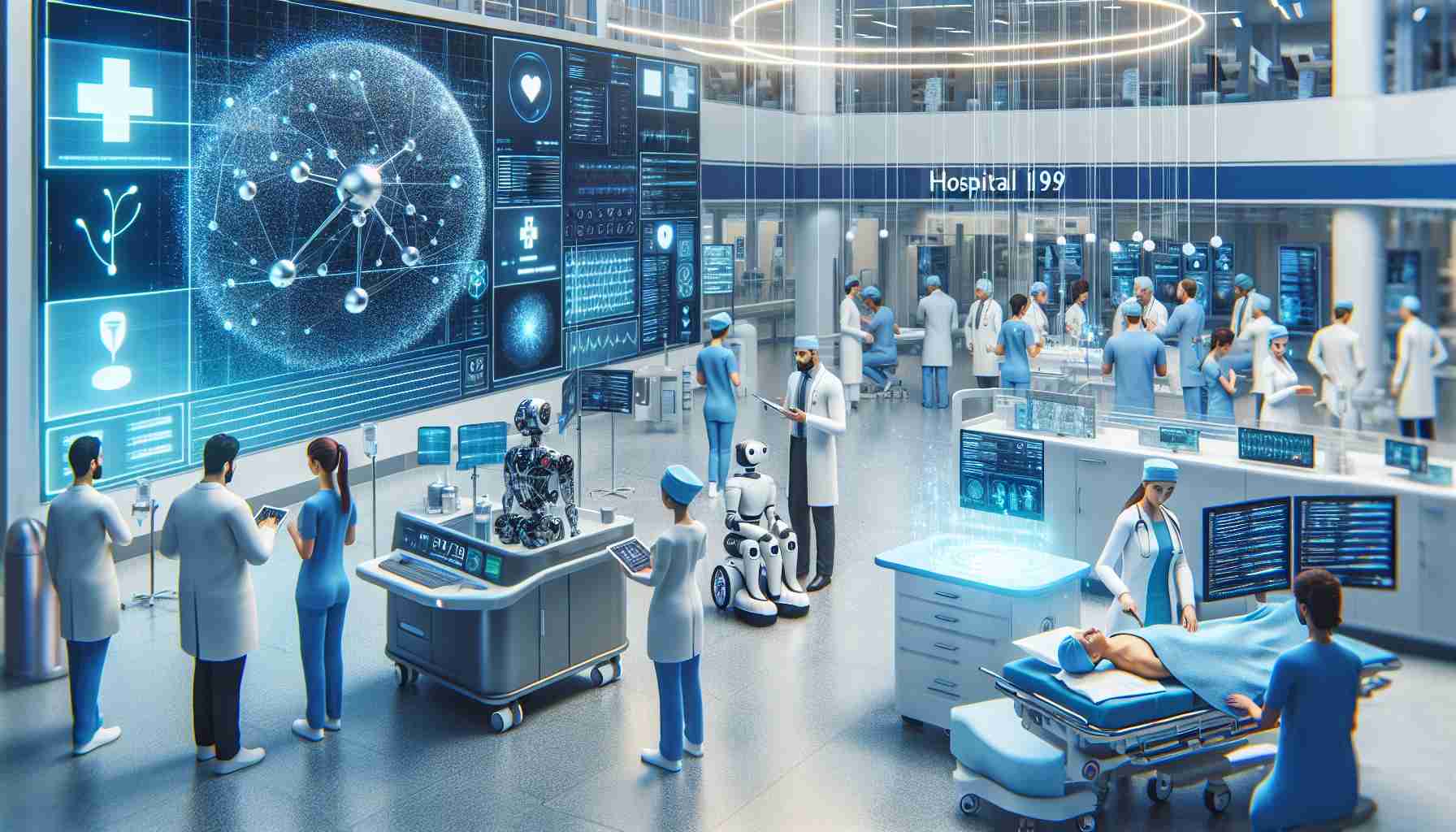Hospital 199 in Da Nang has pioneered the use of artificial intelligence (AI) in healthcare, setting a new standard for patient care in Vietnam. Since 2022, the institution has integrated advanced information technology within its medical services, focusing on creating innovative applications that connect patients with healthcare providers.
The implementation of AI in this hospital has significantly enhanced the diagnostic process, particularly in radiology and hematology. The DrAid X-ray application has outperformed traditional diagnostic methods, showcasing superior accuracy in analyzing and labeling various types of medical images. For instance, it successfully diagnosed over 37,000 cases in lung radiography, identifying abnormalities in nearly 18,000 instances.
Additionally, AI systems have been deployed throughout Hospital 199 to improve infrastructure monitoring, security, and patient rehabilitation. With an extensive network of surveillance cameras and free Wi-Fi hotspots, the hospital can efficiently manage safety and service delivery. The robust rehabilitation program has seen thousands of patients benefit from AI-assisted recovery tools.
Moreover, AI in social media monitoring and customer care is transforming the patient experience, utilizing advanced conversational agents that streamline communication. Collaborative projects involving robotic assistants are also on the horizon, promoting efficiency in patient care logistics.
Ultimately, the forward-thinking initiatives at Hospital 199 demonstrate a commitment to leveraging AI for enhanced healthcare services, paving the way for transformative growth in the medical field.
Revolutionizing Healthcare: The Role of AI at Hospital 199
In the ever-evolving landscape of healthcare, Hospital 199 in Da Nang has emerged as a trailblazer in integrating artificial intelligence (AI) into its infrastructure. This progressive initiative not only enhances patient care but also addresses some pressing challenges in the medical sector. With a focus on improving operational efficiency and patient outcomes, Hospital 199 exemplifies how AI can revolutionize healthcare delivery in Vietnam and beyond.
Key Questions Addressed:
1. What specific AI technologies are being utilized at Hospital 199?
Hospital 199 employs a variety of AI technologies, including machine learning algorithms for predictive analytics, natural language processing for patient engagement, and robotic process automation (RPA) for administrative tasks. These tools enhance decision-making, reduce human error, and streamline operations.
2. What impact does AI have on patient care?
AI significantly reduces waiting times for diagnosis and treatment by facilitating quicker analysis of medical data. For example, AI-powered tools can prioritize cases based on urgency, ensuring that patients receive timely intervention, especially in critical scenarios.
3. Are there any ethical concerns regarding AI in healthcare?
Yes, ethical considerations include the potential for bias in AI algorithms and the confidentiality of patient data. Ensuring transparency in AI decision-making processes and securing personal health information are paramount to maintaining trust in these technologies.
Key Challenges and Controversies:
While the integration of AI at Hospital 199 presents numerous advantages, it is accompanied by several challenges:
– Data Privacy: With the extensive use of AI systems, there is a heightened risk of data breaches. Ensuring robust cybersecurity measures and compliance with health data regulations is crucial.
– Job Displacement: There is concern that AI might replace certain healthcare jobs, particularly in diagnostics and administrative roles. Balancing technology implementation with workforce training is essential to alleviate such fears.
– Bias in AI Systems: If AI systems are trained on biased datasets, this can lead to disparities in care and treatment. Addressing this bias is critical to ensure fairness in healthcare delivery.
Advantages of AI in Healthcare:
– Enhanced Accuracy: AI systems, such as image recognition tools for radiology, provide higher accuracy rates in diagnostics than traditional methods, leading to better patient outcomes.
– Operational Efficiency: AI automates repetitive tasks, allowing healthcare professionals to focus on higher-level patient care. This increases overall productivity and reduces burnout among staff.
– Personalized Medicine: AI enables the analysis of large datasets to develop personalized treatment plans based on individual patient profiles, improving the efficacy of interventions.
Disadvantages of AI in Healthcare:
– High Implementation Costs: The integration of AI technology requires significant investment in both technology and training.
– Dependence on Technology: There is a risk that healthcare providers may become overly reliant on AI, potentially diminishing critical thinking and clinical judgment.
– Access Disparities: Not all hospitals, especially in rural areas, may have the resources to implement advanced AI systems, leading to inequities in healthcare access.
In conclusion, Hospital 199 serves as a crucial example of how AI can transform healthcare by improving efficiency and patient outcomes while addressing significant industry challenges. As this technology continues to evolve, it holds the promise of making healthcare more accessible, accurate, and patient-centered.
For further information on the role of AI in healthcare, visit Health Affairs and American Medical Association.

















